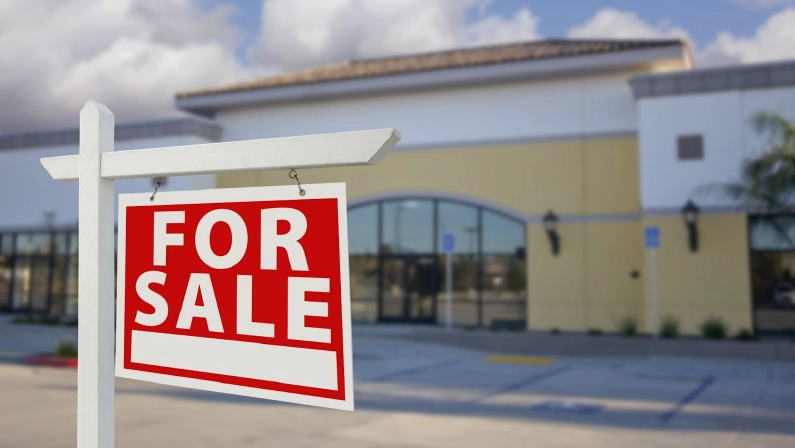Investing in commercial real estate can be lucrative but not without complexities.
Understanding the critical factors involved is essential whether you’re a seasoned investor or a first-time buyer. From market analysis to financing options, there’s a myriad of considerations that can impact the success of your investment.
In this article, we’ll tackle the key things you need to know before taking the plunge into commercial real estate.
What Is Commercial Real Estate?
Commercial real estate encompasses various property types, each with its unique characteristics and considerations. Here are some common categories:
Multifamily
Multifamily properties refer to residential buildings with multiple units, such as apartment complexes or condominiums. When considering this type of investment, investors should analyze factors like occupancy rates, rental demand, and potential rental income.
Office Space

Office spaces are commercial properties designed for businesses and professional services. Factors to consider include location, amenities, lease terms, market demand, and the potential for long-term tenants or lease renewals.
Retail
Retail properties include shopping centers, malls, storefronts, or standalone stores. Evaluating foot traffic, consumer demographics, tenant mix, and lease terms is crucial to gauge the property’s profitability and long-term viability.
Industrial
Industrial properties encompass warehouses, distribution centers, manufacturing facilities, or industrial parks. Considerations include location, transportation infrastructure, lease terms, zoning regulations, and demand from industries in the area.
Hospitality
Hospitality properties include hotels, resorts, or bed and breakfast establishments. Investors should evaluate factors such as location, tourist demand, occupancy rates, brand reputation, and potential for revenue growth in the hospitality industry.
Understanding these different types of commercial real estate helps investors align their goals and strategies with each property type’s specific market dynamics and demands.
Buying Commercial Property For Personal Use
While commercial real estate is typically associated with investment purposes, there are instances where individuals may consider buying commercial property for personal use. This can include setting up a business location, starting a restaurant, or establishing a home office.
When purchasing commercial property for personal use, it is crucial to carefully evaluate factors such as location, zoning regulations, space requirements, accessibility, and potential for growth or expansion.
Conducting thorough market research, assessing the property’s condition, and considering long-term feasibility is essential to ensure that the chosen commercial property meets personal needs and aligns with the intended purpose.
Additionally, it is important to evaluate the financial implications, including upfront costs, ongoing maintenance expenses, and any legal or regulatory requirements associated with the specific use of the property.
By approaching the purchase of commercial property for personal use with diligence and careful consideration, individuals can find a suitable space that fulfills their needs and supports their personal ventures.
Buying Commercial Property For Investment Purposes
Investing in commercial real estate offers various avenues for generating income and building wealth. Here are some common investment strategies if you want to buy commercial property:
Land Banking
Land banking involves purchasing undeveloped land to hold onto it for future development or selling it at a higher price. Investors often focus on strategic locations with growth potential, considering factors like zoning regulations and infrastructure development plans.
Development
Development entails acquiring properties to construct new buildings or improve existing structures. Investors must conduct thorough feasibility studies, assess market demand, navigate regulatory processes, and manage construction costs to ensure a profitable outcome.
Fix & Flip
The fix-and-flip strategy involves buying distressed commercial properties, renovating or improving them, and selling them for a profit. This strategy requires a keen eye for undervalued properties, effective project management skills, and local real estate market knowledge.
Wholesaling
Wholesaling involves finding commercial properties at discounted prices and assigning the purchase contract to another investor for a fee. This strategy requires strong networking skills, market knowledge, and the ability to identify attractive investment opportunities.
BRRRR (Buy, Rehab, Rent, Refinance, Repeat)
The BRRRR strategy involves acquiring properties, rehabilitating them to increase their value, renting them out to generate cash flow, refinancing to pull out the invested capital, and repeating the process with the newly acquired funds. This strategy enables investors to build a portfolio of income-generating properties over time.
Passive Investing

Passive investing involves becoming a limited partner or investing in real estate investment trusts (REITs) or real estate funds, allowing investors to earn income passively without actively managing the properties. This strategy offers diversification and hands-off involvement in property management.
Each investment strategy comes with its own set of considerations and risks. Investors should thoroughly research and understand the specific strategy they wish to pursue, assessing factors such as market conditions, financial feasibility, and their own risk tolerance before making investment decisions.
6 Steps In Buying Commercial Real Estate
Purchasing commercial real estate requires a systematic approach to ensure a successful transaction. Here are six key steps to guide you through the process:
Define Your Motivation
Determine your objectives and motivations for buying commercial real estate. Are you looking for long-term rental income, property appreciation, or a location for your business? Clarifying your goals will help you make informed decisions throughout the buying process.
Secure Financing from a Lender

Identify your financing needs and explore options for securing a commercial loan. Research lenders who specialize in commercial real estate financing, gather the necessary financial documentation, submit loan applications, and consider working with a mortgage broker to navigate the lending process.
Finding the right loan to finance your commercial property purchase involves several essential steps:
Determine your financing needs
Evaluate your financial requirements, including the amount of loan needed, desired interest rate, loan term, and repayment options, to identify the most suitable financing solution for your commercial property investment.
Research lenders
Conduct thorough research to identify reputable lenders specializing in commercial real estate financing. Consider their loan terms, interest rates, fees, and reputation within the industry to find a lender that aligns with your financial goals and requirements.
Gather documentation
Prepare the financial and legal documents lenders require, such as income statements, tax returns, property details, business plans, and personal financial statements. Having these documents organized and readily available will streamline the loan application process.
Submit loan applications
Complete the loan application forms provided by your chosen lenders. Provide accurate and comprehensive information about yourself, your business (if applicable), and the property you intend to purchase. Submit the applications to begin the loan evaluation and approval process.
Work with a mortgage brokerConsider engaging a mortgage broker who can act as an intermediary between you and potential lenders and can help you how to buy commercial properties. Mortgage brokers have access to multiple lending sources. They can help you navigate the loan market, negotiate terms, and increase your chances of securing favorable financing options for your commercial property purchase.
Hire a Team of Trusted Professionals

Build a team of trusted professionals who specialize in commercial real estate transactions.
Realtor
A realtor specializes in commercial real estate and assists with property searches, market analysis, negotiations, and ensuring a smooth buying process.
Attorney
An attorney with commercial real estate law expertise reviews legal documents, provides guidance on contracts and agreements, and ensures compliance with relevant regulations.
Accountant
An accountant helps with financial analysis, tax planning, and assessing the financial viability of the investment, providing valuable insights into the financial aspects of the transaction.
Mortgage Broker
A mortgage broker helps secure financing by connecting buyers with suitable lenders, assisting with loan applications, and guiding borrowers through the mortgage approval process.
Contractor
A contractor assesses the property’s condition, estimates renovation or improvement costs, and provides valuable insights on the feasibility of desired modifications.
Property Manager
A property manager oversees the day-to-day operations of the property, including tenant management, maintenance, and lease administration, ensuring efficient property management and maximizing returns.
Find the Perfect Opportunity
Search for commercial properties that align with your investment criteria and objectives. Utilize online listings, work with a realtor, attend networking events, and explore off-market opportunities to find properties that meet your requirements and offer potential for growth.
Run the Numbers
Thoroughly analyze the financial aspects of the property. Evaluate income potential, operating expenses, potential renovations or improvements, and projected return on investment. Conduct a comprehensive financial analysis to ensure the property aligns with your investment goals.
Make an Attractive Offer
Once you have identified a suitable property, make an attractive offer that reflects the market value and considers the property’s condition and potential. Work with your realtor to negotiate terms, review contingencies, and finalize the purchase agreement. Be prepared for potential counteroffers and engage in a constructive negotiation process.
By following these six steps, you can confidently navigate the process of buying commercial real estate and increase your chances of a successful investment.
How Profitable is Commercial Real Estate?
Commercial real estate has the potential to generate substantial profits for investors. Here are three factors that contribute to its profitability:
- Rental Income: Commercial properties, such as office spaces, retail spaces, and multifamily buildings, can generate consistent tenant rental income. The lease agreements often span longer durations, providing stable cash flow and the potential for rent escalations.
- Property Appreciation: Over time, commercial properties have the potential to appreciate. Factors such as location, demand, and market trends can contribute to the appreciation of the property, allowing investors to profit from capital gains upon sale or refinancing.
- Diversification: Commercial real estate offers diversification benefits for an investment portfolio. Its performance is generally less correlated with other asset classes like stocks and bonds, providing investors with a hedge against market fluctuations and the potential for stable returns.
These factors, combined with effective property management, thorough due diligence, and strategic investment decisions, can make commercial real estate a profitable asset class for investors seeking long-term wealth accumulation and income generation.
However, it’s important to note that profitability varies depending on market conditions, property type, location, and individual investment strategies.
How To Find Commercial Real Estate For Sale in Houston, TX
If you’re searching for commercial real estate opportunities in Houston, TX, having the right resources and expertise at your disposal is crucial.
As Houston’s top commercial real estate agency, Apex Realtors specializes in connecting buyers with exceptional commercial properties in this vibrant city. With our extensive knowledge of the local market, a wide network of industry contacts, and a commitment to client satisfaction, Apex Realtors can guide you through finding the perfect commercial real estate investment in Houston.
Whether you’re looking for office spaces, retail properties, industrial warehouses, or multifamily buildings, our experienced team can assist you in identifying lucrative opportunities that align with your investment goals.
Trust Apex Realtors to navigate the Houston commercial real estate market and help you secure a profitable investment for your portfolio. Contact us today or visit us at 5444 Westheimer Rd. Suite 1620, Houston, 77056 and take the first step towards your commercial real estate success in Houston, TX.

